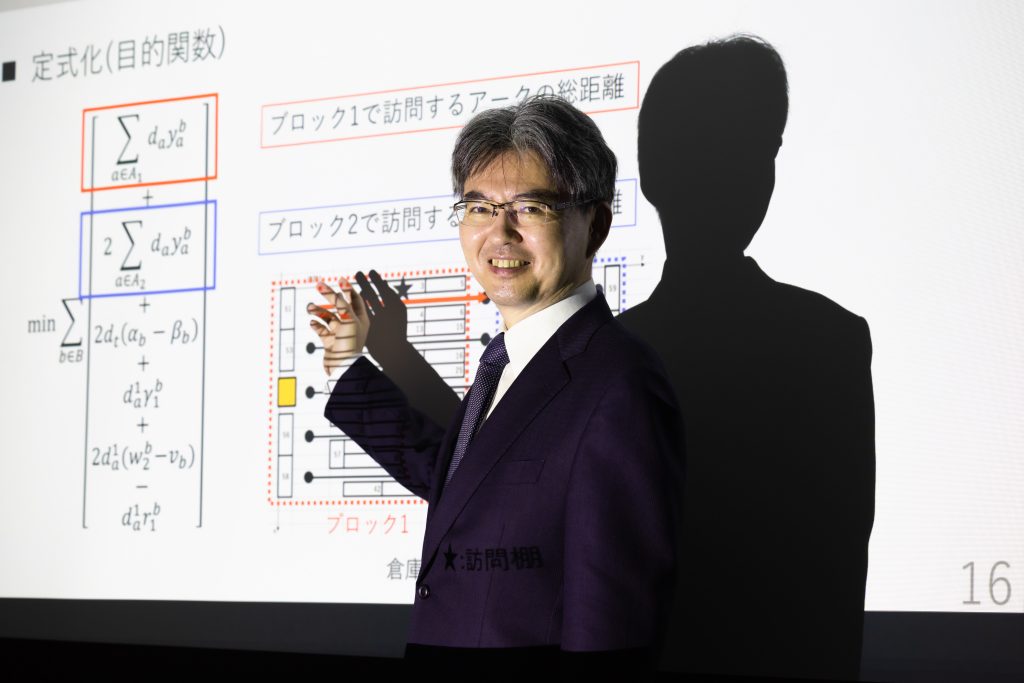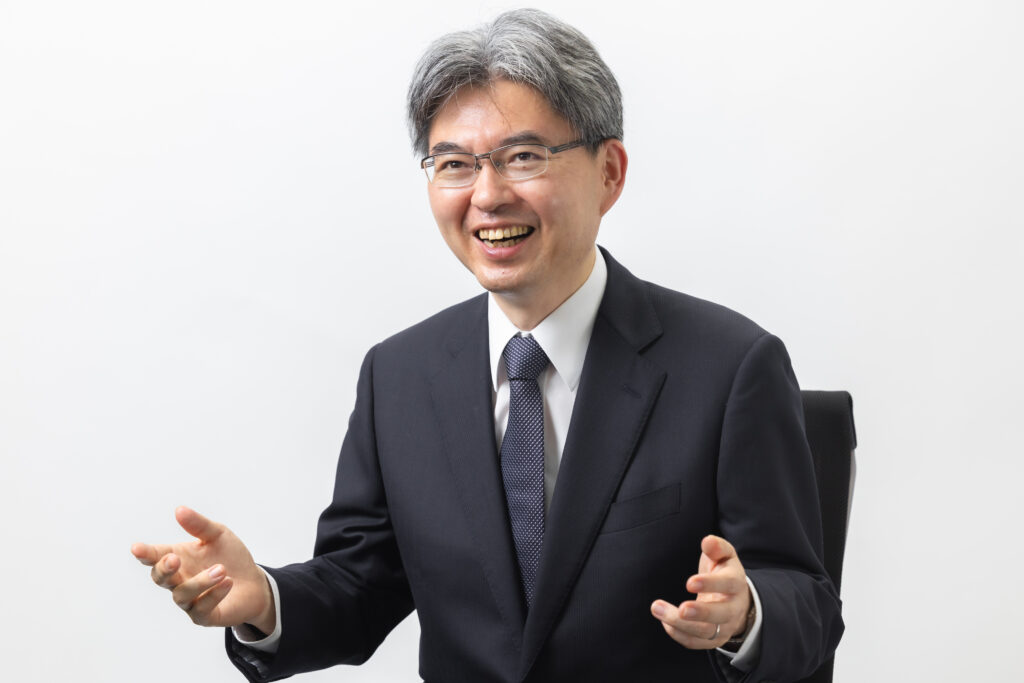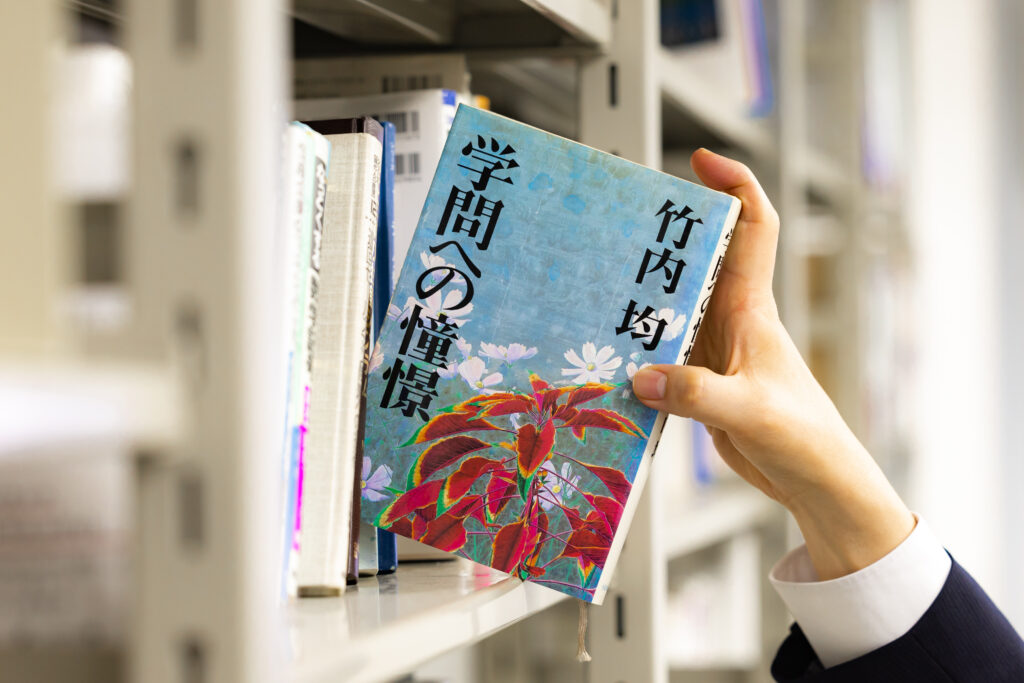
Specializing in industrial engineering, Professor Takashi Irohara of the Faculty of Science and Technology studies ways of using big data to tackle business challenges in the manufacturing and logistics industries. From globalization to climate change, industrial engineering presents an array of exciting challenges.
Industrial engineering takes an engineering approach to solve problems that arise in business management. My own research focuses primarily on production and logistics systems.
Technologies in the manufacturing industry can be roughly divided into “intrinsic” and “management” technologies. In the case of an automobile manufacturer, for example, intrinsic technologies are those that enhance the performance of engines and brakes. However, even if the company has intrinsic technologies advanced enough to design a car that can win a Formula One race, the world’s most prestigious motor racing competition, that alone would not be enough to keep the business running.
To stay in business, the company needs to manufacture, sell, and make a profit from several million cars a year. They require technologies that can design a system for the whole process, from product design, procurement and production of parts through to sales and distribution, as well as collection and disassembly of used products. These are known as management technologies, and industrial engineering aims to enhance these by tackling the challenges companies face.
Expanding options, endless challenges

With globalization, companies now have a wider range of options when choosing where to source their raw materials, or where to build their factories and distribution centers. The options are vaster still when we add in factors such as cost reduction methods, the total time required for production (lead time), risk of political upheaval in countries where factories are located, and methods of transporting the finished products.
Industrial engineering considers the overall picture and selects the most efficient options to design the optimal production and logistics systems for each company. What makes the execution of such a complex process possible is not the experience or intuition of long-term employees, but rather an engineering approach in which big data are collected and evaluated to find the optimal solution.
Needless to say, as university scholars, it is important that we progress our field, developing new theories and technologies superior to those obtained in previous studies, and publishing our findings. However, I also believe that designing solutions with practical, real-world applications is where our strength lies, and to help develop truly useful forms of industrial engineering, I actively engage in joint research with many companies and communicate with those working on the frontline.
Industrial engineering tackles air pollution
Engineering-based approaches to problem solving have applications beyond business management. From 2018, I spent three years working with local government on a project to tackle air pollution caused by traffic congestion.
We can reduce congestion of public roads and local NOx and CO2 emissions by diverting cars to highways, but if too many cars are diverted, then the highways might become congested instead. Industrial engineering methods such as optimization and mathematical simulation can help tackle such problems by providing data on the percentage of vehicles that need to be diverted and the amount of NOx that can be reduced.
As we see with the shift from gas-powered vehicles to hybrids and EVs in the automobile industry, over time, the products that companies make change, giving rise to new challenges. I want to stay up to date with the new initiatives of forward-thinking companies, and I also want to properly verify whether the methods they employ are really correct. I am glad that the possibilities for research are endless. An abundance of challenges. That’s what I want.
The book I recommend
“Gakumon e no dōkei” (Longing for Learning)
by Hitoshi Takeuchi, Koseishuppan

Essay by physicist Hitoshi Takeuchi, the first editor-in-chief of the Science Magazine Newton. A native of Fukui Prefecture, the author’s earnest desire for learning gave me courage, as someone who grew up in a small town and felt somewhat daunted by the prospect of learning.
-
Takashi Irohara
- Professor
Faculty of Science and Technology
Department of Information and Communication Sciences
- Professor
-
Graduated from Waseda University, School of Science and Engineering, Department of Engineering and Management (now the Department of Industrial Management Systems Engineering in the School of Creative Science and Engineering), and obtained a Ph.D in Engineering from the same university. Doctor of Engineering. Served as an assistant at Waseda University, School of Science and Engineering, and as an Associate Professor at Sophia University’s Faculty of Science and Technology, before assuming current post in 2010.
- Department of Information and Communication Sciences
Interviewed: April 2022